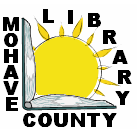Manager of Business & Career Services
Brooklyn Public Library
Full-time
On-site
Brooklyn, New York, United States
$90,000.00-$94,000.00,Yearly
4 months ago

$172,051.00-$226,569.00,Yearly
⚠️ This job was posted over 3 months ago. It may no longer be available.
View more recent job openings →Position Overview
The Director, Information and Knowledge Management is accountable for ensuring the sound management of The Rockefeller Foundation's information assets throughout their lifecycle in support of the Foundation’s commitment to managing, preserving, and sharing institutional knowledge. Reporting to the General Counsel and Corporate Secretary, they will lead the Information and Knowledge Management program, and proactively collaborate with stakeholders across the foundation, including the Chief Operating Officer, Chief Technology Officer, and General Counsel, to meet programmatic and organizational goals. The Director maintains the highest of standards within the Foundation and the philanthropic sector for managing information, preserving and leveraging organizational knowledge, promoting transparency and access, and contributing to the public discourse. The Director is committed to accessible and inclusive practices for managing and safeguarding institutional knowledge, while mitigating unnecessary risk, enhancing operational efficiency, and supporting decision-making.
Pay Range: $172,051 - $226,569. This represents the present low and high end of the Foundation’s pay range for this position. Actual pay will vary based on various factors, including but not limited to experience.
Work Schedule: This role is on a hybrid work schedule, and required to be in the office on Tuesdays, Wednesdays, and Thursdays.
Principal Duties and Responsibilities
**Information Governance **
**Knowledge Management **
**Records Management **
**Networks **
Education, Experience, and Skills
Qualifications and Competencies
About The Rockefeller Foundation
The Rockefeller Foundation is a pioneering philanthropy built on collaborative partnerships at the frontiers of science, technology, and innovation that enable individuals, families, and communities to flourish. We make big bets to promote the well-being of humanity. Today, we are focused on advancing human opportunity and reversing the climate crisis by transforming systems in food, health, energy, and finance. For more information, sign up for our newsletter at http://rockefellerfoundation.org and follow us on X @RockefellerFdn.
The Rockefeller Foundation offers a comprehensive and competitive benefits package that includes health insurance programs, tuition reimbursement and student loan repayment, a generous 401K, parental leave, and various forms of paid time off, all to help our employees feel energized, cared for, and engaged.
_As an organization, we focus on six values to advance our culture and continue our success. We are dedicated to being Transparent, Optimistic, Accountable, Collaborative, Trusted, and Equitable. We operate from a strong commitment to equity, diversity, and inclusion in everything that we do. It is not only the right thing to do – we could not make an impact without the diverse perspectives and experiences of our team members. We expect all employees at the Foundation to contribute by developing their unique perspectives and talent, challenging conventional wisdom through evidence and reason, and amplifying marginalized voices. _
_The Rockefeller Foundation is committed to the principles of equal employment opportunity and compliance with all federal, state, and local laws concerning employment discrimination, including the Americans with Disabilities Act. To this end, the Foundation ensures equal opportunity to all employees and applicants regardless of race, color, age, gender, sexual orientation, religion, marital status, national origin or ancestry, citizenship, lawful alien status, physical, mental, and medical disability, veteran status, liability for service in the United States Armed Forces, or any other protected status. _
The Rockefeller Foundation is an Equal Opportunity Employer.
Brooklyn Public Library
Full-time
On-site
Brooklyn, New York, United States
$90,000.00-$94,000.00,Yearly
4 months ago

Mohave County Library District
Full-time
On-site
Bullhead City, Arizona, United States
$68,078.40-$112,486.40,Yearly
3 days ago
Fitchburg State University
Temporary
On-site
Fitchburg, Massachusetts, United States
$51,287.00-$51,287.00,Yearly
4 months ago
Dyer Library/Saco Museum
Full-time
On-site
Saco, Maine, United States
$58,500.00-$60,567.00,Yearly
4 months ago
Stony Brook University
Full-time
On-site
Stony Brook, New York, United States
$59,083.00-$61,083.00,Yearly
4 months ago